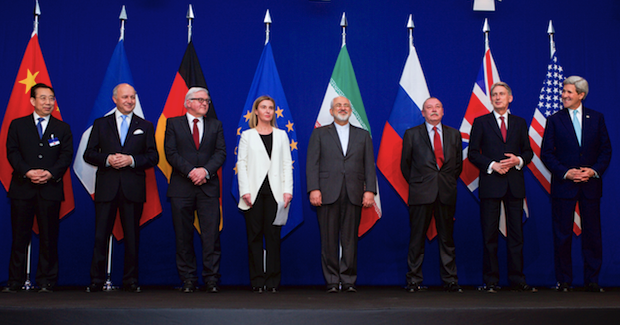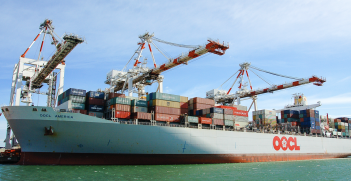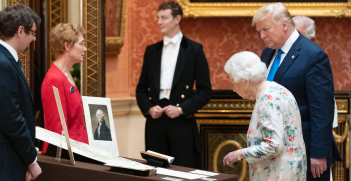Will Trump Continue the Iran Nuclear Deal?

The election of Trump will undoubtedly affect the implementation of the Iran nuclear deal. There are several views about what Trump will do with this agreement. Will he tear it up? Will he seek to renegotiate or increase pressure on Iran? Is he a better negotiator than his predecessor?
The two key negotiating parties to the deal, Iran and the United States, have both chosen to take a hostile approach to the negotiations. The US required that any final agreement allow it to immediately re-apply the sanction regime if Iran does not honour its commitments. Iran, on the other hand, only agreed to an outcome that allows it to resume its nuclear activities to previous levels if the US does not honour its own commitments.
The simplifying of such complex negotiations to a win-win strategy, while disregarding the parties’ short-, medium- and long-term drivers has resulted in a risky agreement with problematic implementation.
Now, with the election of President-elect Trump, the Iran nuclear deal, or Joint Comprehensive Plan of Action (JCPOA) as it is correctly known, may suffer during implementation through lack of commitment from one or more parties.
The JCPOA was a result of both parties’ immediate and short-term objectives. The last-minute agreement was a gamble for time, when parties saw no choice but to temporarily agree to an outcome better than any other available alternative at that time.
The election of Trump as the next US president will undoubtedly affect the implementation of the JCPOA, requiring a reassessment of potential risks and wise strategic planning. There are several views of what Trump will do to the JCPOA. Will he tear it up? Will he seek to renegotiate the agreement? Or will he increase the pressure on Iran by requiring stricter implementation and a narrower interpretation of the agreement.
Those who believe that Trump will continue to implement the JCPOA, one way or another, rely on the argument that once in the office, Trump will consider all priorities and complications and conclude that the best option is to keep the agreement. These arguments assume that Trump will behave as a rational politician—that his decision-making process in the office will not follow his behaviour during the US election campaign. They ignore the fact that Trump is a business person before a politician, and therefore such assessment may not be sensible. They also dismiss the impact of emotion and ego on decision making. An irrational decision maker may as well tear up the agreement.
However, Trump has also declared that the JCPOA in its current form is a bad agreement—a disaster and “the worst deal ever negotiated!” he says. Does he take it upon himself to prove to the world that he is a better negotiator than his predecessor, and can achieve a better result? In case he decides to engage in renegotiation with Iran, what would his tactics be? How would he bring Iran and other P5+1 stakeholders (China, France, Germany, Russia and United Kingdom) back to the negotiating table?
He could use threatening tactics and exercise a power play to force Iran to engage in renegotiation. How would Iran react to such tactics—would they see it as losing face?
Would he tear up the agreement to force Iran to restart negotiations? Or would he maintain the status quo? He may create a deadline—say six months—to renegotiate a deal, and should a deal not be reached by the deadline, he will tear up the agreement. How would such a negotiation take place, if Iranians see this as a threat and bullying behaviour, and how would the other P5+1 members react?
Another tactic Trump may choose would be to escalate the pressure on Iran by increasing sanctions and maintaining a stronger and stricter interpretation of the current JCPAO. For example, this could include recent measures like blocking Boeing from selling or leasing jetliners to Iran. What would be Iran’s reaction if they see that the JCPOA is of no use to them anymore?
This is a hostile dilemma that the new US administration and the rest of the world will be facing after President-elect Trump’s inauguration in January 2017.
A wise and sustainable JCPOA agreement should have included a commercial framework agreement including a collaborative commercial enhancement program, and a collaborative economy development program with Iran. If the parties treat the P5+1 negotiations as commercial negotiations rather than political ones (although it may have some political flavour to it), then there will be hope to renegotiate a better agreement. This fits well with Trump being a business person before being a politician.
Whatever Trump decides, a wise process achieves success by avoiding the setup of a competitive and hostile environment, controlling emotions and egos effectively, and engaging in a collaborative conversation. Parties should be reminded of the dangers of going back to square one by creating a hostile environment.
Mehran Mossadegh holds a masters in commercial law from Monash University and a graduate certificate of law from Victoria University. He is the founder of NegotiationWise and has written further on the P5+1 and Iran negotiations here.
This article is published under a Creative Commons Licence and may be republished with attribution.





